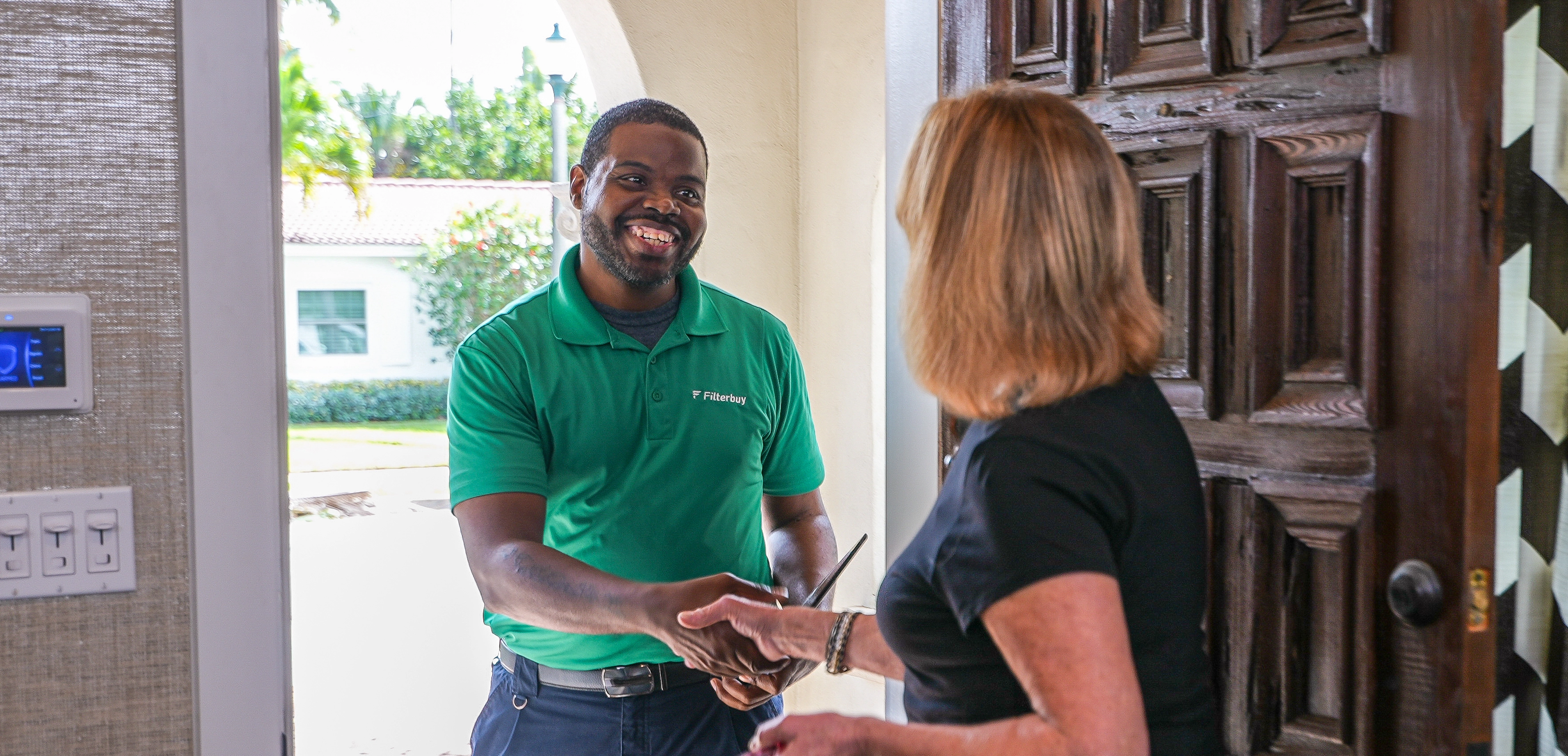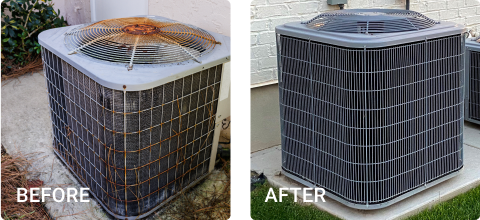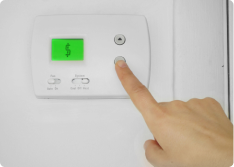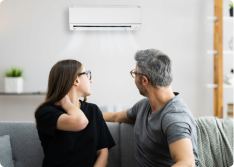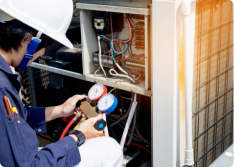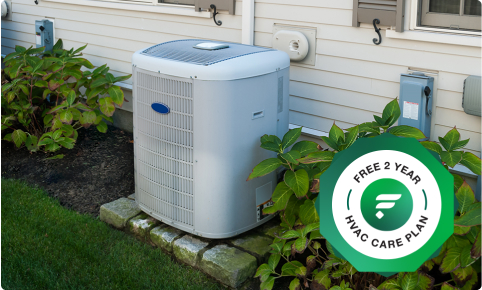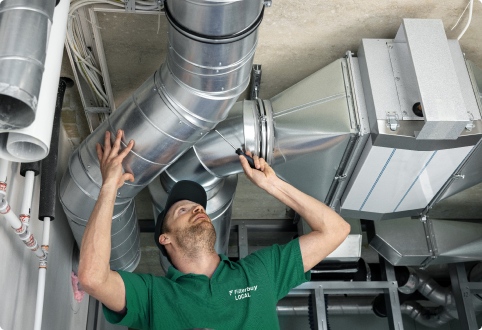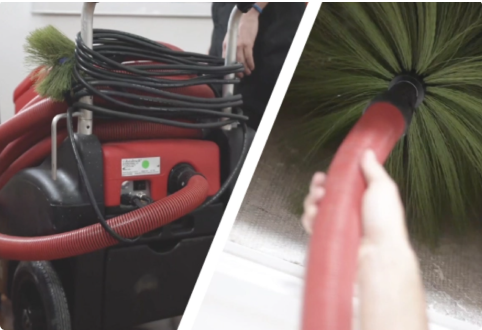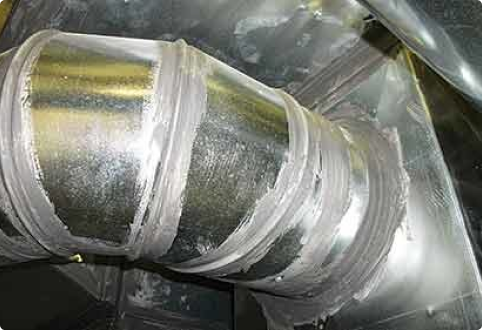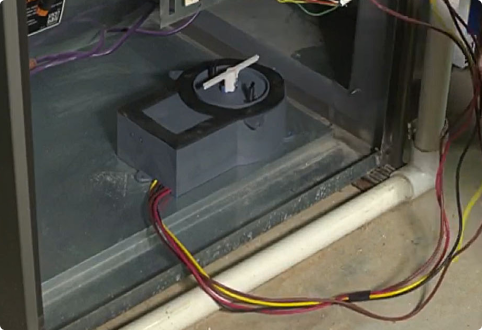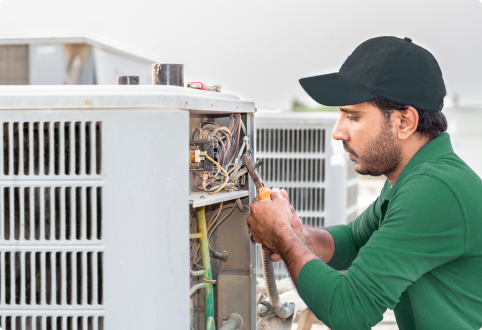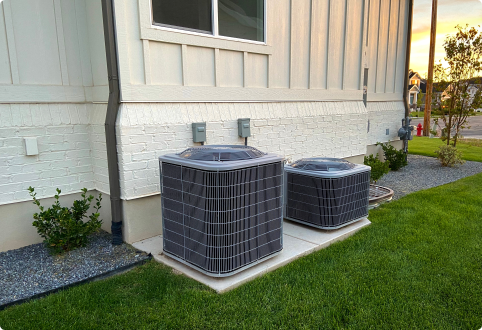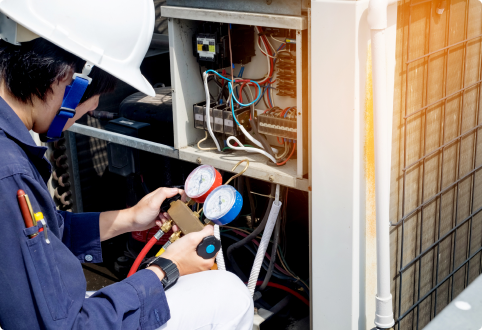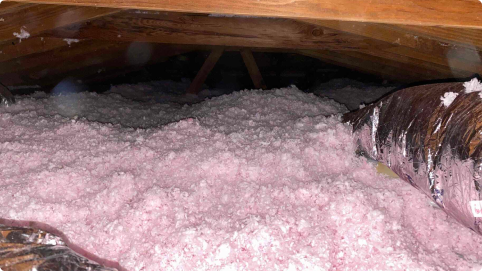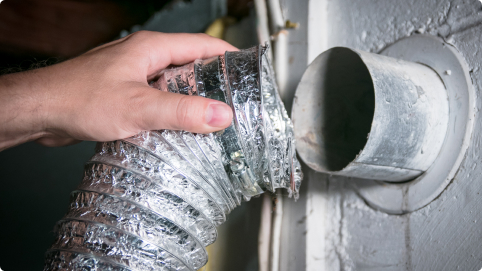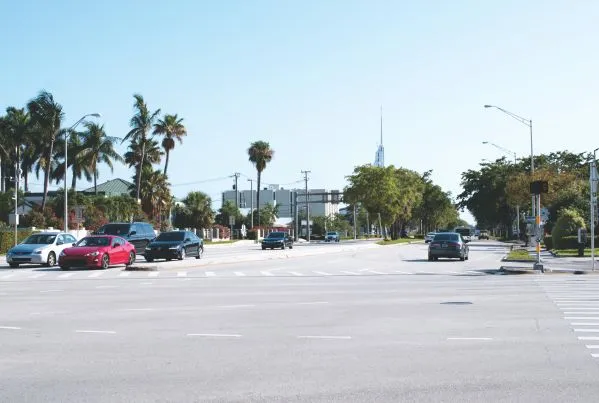Welcome to Filterbuy HVAC Solutions, the best HVAC system installation service company proudly serving in and near the greater Fort Lauderdale, FL area. Please let us know how we can help solve your Fort Lauderdale HVAC system installation needs with professional, affordable, and fast residential and commercial HVAC services by getting a free online quote or by giving our friendly HVAC specialists a call. We look forward to hearing from you!
HVAC Installation Fort Lauderdale
Fort Lauderdale is a popular destination in South Florida, known for its beautiful beaches and high-end lifestyle. Finding the right HVAC installation service in such an area can be challenging due to the high demand and numerous options available. This article will provide information on the various aspects of hiring an HVAC installation company located in Fort Lauderdale FL, as well as tips for selecting the best option for individual needs.
Installing a new heating, ventilation, and air conditioning (HVAC) system requires professional expertise no matter where it is being done. It is important to select experienced technicians who are familiar with all local building codes so that the job is completed properly without any issues arising later on. Furthermore, choosing someone with good customer service skills can make the entire experience much smoother and more satisfying.
Finally, cost should also play an important role when making this type of decision. Although many factors affect the price - such as labor costs - it is possible to find quality services at reasonable rates if one takes the time to do some research and comparisons between different companies operating in Fort Lauderdale. In conclusion, this article provides insight into how to choose an appropriate HVAC installation service from among those available in Fort Lauderdale.
Definition Of HVAC
HVAC stands for Heating, Ventilation, and Air Conditioning. It is a system that provides environmental comfort in residential, commercial, or industrial settings by controlling temperature, humidity, air quality, and ventilation. HVAC systems are composed of three main components: heating units, cooling units, and distribution devices like ducts and vents which transport the conditioned air throughout the building. The type of system chosen will depend on the size of the building, usage requirements, and desired energy efficiency levels.
The heating component of an HVAC system may use gas furnaces, electric heat pumps, or boilers to generate warm air within a space. Cooling components usually consist of central air conditioners with outside condensing units along with evaporative coolers or chillers when necessary. Distribution devices can supply only ductwork without return grills or include both supply and return ducts depending on whether the indoor environment requires fresh air intake from the outdoors.
A properly designed HVAC system should provide efficient operation while meeting all safety standards set forth by local governing bodies such as AHRI (Air-Conditioning, Heating & Refrigeration Institute) and ASHRAE (American Society of Heating, Refrigeration & Air Conditioning Engineers).
Benefits Of Professional Installation
Statistics have shown that the installation of a new HVAC system is one of the top three investments homeowners make in their homes. Professional installation of an HVAC system offers numerous benefits, such as improved air quality and energy efficiency, enhanced comfort levels, and lower utility bills. Additionally, professional installation ensures that all components are properly installed to operate at peak performance for many years to come.
Professional technicians understand how to install systems efficiently and safely so that the homeowner does not have to worry about potential problems in the future. They also possess specialized knowledge on proper sizing, ductwork design, and ventilation requirements which can help ensure optimal operation of the equipment over time. Professionals also use up-to-date tools and techniques when installing modern HVAC systems including digital thermostats, zoning systems, or variable speed motors which require specialized expertise.
By investing in professional installation services, homeowners can be sure they are receiving reliable performance from their system while minimizing any long-term maintenance costs associated with improper installations or inadequate repairs down the line. With these advantages, it is easy to see why the professional installation of an HVAC system is essential for ensuring its safe and efficient operation over time.
The selection of an appropriate HVAC system requires careful consideration by both experienced professionals and knowledgeable consumers alike.
Choosing The Right System
Having a professional install an HVAC system is essential for optimal performance, safety, and efficiency. Now that the benefits of such installations are clear, it’s time to explore how to choose the right system for a particular home or business in Fort Lauderdale.
To make sure you select the best unit for your needs, here are three things to consider:
- Size: A properly sized machine will run efficiently and provide comfort without wasting energy. An oversized unit may cycle on and off frequently, leading to increased wear and tear as well as higher bills. On the other hand, if an undersized model is chosen, it won't be able to fully heat or cool your space.
- Energy Efficiency Ratings: Look for systems with high ratings from AHRI (Air Conditioning Heating Refrigeration Institute) or ENERGY STAR® certification. The higher the rating, the more efficient they'll be over time.
- Different Types of Systems: Consider whether there's already ductwork in place or if mini split units need installation since these models don't require ducts at all. Other options include furnace/air handler combos and packaged terminal air conditioners which combine heating and cooling into one box installed outdoors.
Considering all these factors can help ensure a successful installation of any size system in Fort Lauderdale while avoiding costly mistakes down the road. To learn more about the different types of HVAC systems available, read on.
Different Types Of HVAC Systems
Installing an HVAC system is like building a bridge. It requires careful planning and design to ensure that it can withstand the elements, provide comfort in all seasons, and last for many years. Just as there are different types of bridges, there are different types of HVAC systems too.
The two most common types of HVAC systems used in residential settings are split systems and packaged units. A split system has an outdoor condenser unit connected to one or more indoor air handlers. This type of setup offers flexibility with zoning options, allowing homeowners to control climate levels within individual rooms or areas separately from other parts of the home. Packaged units combine both heating and cooling components into one single machine that sits outside the house; this makes them ideal for those who want to minimize their energy bills but still have reliable temperature control throughout their home.
In addition to these two main categories, there are also hybrid heat pumps that offer efficient performance no matter what the weather conditions may be. Heat pumps use electricity to move heat instead of generating it directly, so they require less energy consumption than traditional furnaces while still being able to keep your home comfortable during cold winter months. With any type of HVAC system installation, assessing your home’s needs before making a purchase is key to maximizing efficiency and effectiveness over time.
Assessing Your Home's Needs
Before beginning any HVAC installation project in Fort Lauderdale, it is important to assess your home's needs. Knowing the size of the space and what type of climate control you need will help determine which system is best for your home. It also helps to consider whether additional features such as air quality monitoring or energy efficiency are desired before making a decision.
The first step in assessing your home's needs is measuring the total square footage that needs cooling or heating. This measurement must include closed-off rooms and attics, as they all contribute toward the area being cooled or heated by an HVAC system. Once this figure has been determined, you can choose from various sizes of systems based on your estimated capacity requirements. In addition to square footage measurements, other factors should be taken into account when selecting an appropriate system for your home including insulation levels and available ductwork.
If you have existing ducts in place already, then these would usually require less work than having new ones installed. Additionally, there may be local regulations regarding how detailed the inspection of an existing system must be before installing a new one. Ultimately, knowing what type of system you want - central AC/heating unit with forced air delivery; heat pump; geothermal; etc., along with understanding its technical specifications, will ensure you make a wise investment while meeting all necessary safety codes and standards applicable to Fort Lauderdale homeownership. With this information in hand, cost considerations can now be factored into choosing the right HVAC installation option for your home.
Cost Considerations
Money talks and when it comes to HVAC installation in Fort Lauderdale, cost considerations are crucial. Like a jigsaw puzzle, all pieces must fit together for the best outcome – but with some forethought, purchasers can ensure that the financial picture is pleasing. To begin, understanding one's needs should be paramount: what size system do you require? What type of energy efficiency do you wish to achieve? Are there any additional extras or features that may enhance performance and longevity while providing peace of mind? With these questions answered and an exact budget established, buyers can rest assured they will get exactly what they need without spending more than necessary.
The next step is research; comparing makes and models of systems and services provided by contractors before making any commitments. Doing so allows customers to choose the right product at a price point that suits their pocketbook. Furthermore, seeking out rebates through local utility companies could represent significant savings on an already economical purchase. Lastly, taking advantage of special offers from reputable suppliers such as no-interest financing plans further reduces initial costs ensuring a successful installation experience.
When weighing up the pros and cons regarding cost considerations for HVAC installation in Fort Lauderdale – knowledge is power! Knowing your requirements as well as researching available options ensures optimal results both financially and operationally. As such, creating a pre-installation checklist helps guarantee success for even novice shoppers looking for quality service at reasonable prices.
Pre-Installation Checklist
Before installing an HVAC unit, it is important to ensure that the job site meets certain standards. A pre-installation checklist can help ensure all necessary components are in place and functioning before beginning a project.
1. First, check that power sources are available for both indoor and outdoor units. Test existing outlets or arrange for installation of new wiring as needed.
2. Additionally, make sure there is adequate space around the outdoor unit so airflow is unobstructed by debris or other items.
3. Thirdly, examine nearby windows, vents, and crawl spaces for any potential hazards such as falling objects, electrical wires, or combustible materials that may obstruct the job site.
4. Finally, inspect walls and ceilings where ducts will be installed to determine if additional support structures need to be added before installation of the HVAC system's interior parts.
The pre-installation phase helps prevent complications during the installation process itself which could lead to costly repairs down the line. As this stage is critical for ensuring a successful installation process, finding a qualified installer in Fort Lauderdale should be done with care and diligence when selecting an individual or company to perform this service effectively.
Finding A Qualified Installer In Fort Lauderdale
The search for a qualified HVAC installer in Fort Lauderdale begins with an understanding of the task at hand. From ensuring proper installation to increasing energy efficiency, this is no small venture and requires expertise from experienced professionals. Finding the right team starts with research and due diligence; immersing oneself in the local industry and its players can be a crucial first step.
Exploring options through online reviews, word-of-mouth referrals, or professional organizations can help narrow down potential installers who are both certified and adept at their craft. When gathering information on these companies, consider components such as customer service ratings, cost estimates, references, warranties offered, safety protocols observed during work hours, and years of experience that particular contractor has had installing similar systems - all leading up to making an informed decision when hiring an HVAC technician for the job ahead.
Taking time to properly vet each candidate will not only provide peace of mind but also ensure that one's home or business receives quality services without any hiccups along the way. With the right company onboarded for success, attention turns towards maintenance tips after installation—an integral part of keeping one's system running smoothly for many years to come.
Maintenance Tips After Installation
It is important to keep up with regular maintenance of an HVAC system after installation. Keeping the system in proper working order will help ensure its longevity and optimal performance. To maintain a well-functioning unit, it should be inspected at least once a year by a professional technician. Before each inspection, it is recommended that filters be replaced or cleaned as needed. This can help reduce dust buildup inside the unit which may cause issues down the line if left untreated.
Additionally, thermostats should be checked for accuracy and any connections such as wires or ducts need to be examined for integrity periodically. It is also a good idea to check all vents throughout the home for airflow consistency. Any clogs or blockages should be cleared out immediately to avoid potential problems later on.
Regular maintenance of HVAC systems helps increase efficiency and prevents costly repairs and replacements due to neglect over time. Preventive measures taken now can save homeowners money in the future while ensuring their comfort during hot summer months and cold winter days alike.
Troubleshooting Common Issues
Troubleshooting common issues with HVAC installations in Fort Lauderdale requires the right knowledge and skills. It is important to understand the system’s components, how they operate together, and their capacity for maintenance or replacement. Visualizing a process can help troubleshoot an issue more effectively. For example, air conditioning systems use refrigerant as a coolant and electrical energy to transfer heat from inside a building to outside via evaporation. Compressor pumps circulate the refrigerant through evaporator coils located throughout the house which absorb indoor heat into the refrigerant and then expel it outdoors when passing through condenser coils outdoors. If this flow of energy is interrupted due to any component malfunction, such as low-pressure cut-outs or blocked filters, then cooling efficiency will be reduced significantly.
To address these types of problems, competent technicians should have expertise in both mechanical engineering principles and electronic control circuits. Since most HVAC systems are powered by electricity, understanding wiring diagrams and electronic schematics is essential for diagnosing faults with sensors or relays that could be causing unexpected shutdowns or temperature fluctuations. In addition to providing circuit analysis services, qualified contractors should also possess experience in operating specialized tools like infrared thermometers designed specifically for testing temperatures during operation cycles at different points across each unit's components.
Having proper training on current industry standards and codes related to HVAC installation practices is another key element in addressing complex problems efficiently without risking safety hazards associated with improper repairs. Whether identifying system malfunctions or performing regular maintenance procedures involving filter changes or coil cleaning services, knowledgeable professionals must know how to perform tasks safely while following manufacturer specifications correctly.
Frequently Asked Questions
How Long Does A Typical HVAC Installation Take?
Installing a new HVAC system is an important decision for any homeowner. It involves considerable time, effort, and expense to ensure the unit functions correctly in the long term. Consequently, it is essential to understand how much time goes into completing a typical installation process.
On average, the total amount of time required to install a standard HVAC set-up can vary from two days up to one week:
1. The first day involves installing ducts, running electrical wiring, and mounting equipment such as air handlers or evaporator coils.
2. Day two typically requires connecting refrigerant lines and insulating them with foam board insulation before finishing off with weather strips around doors and windows.
3. Finally, technicians must fine-tune all components of the system, including thermostats, condensers, and other parts of the system that are vital for efficient functioning and energy conservation.
Overall, this multi-step process includes several facets that require patience and skill on behalf of both homeowners and contractors alike. While some installations may be simpler than others depending on factors such as size or complexity of design, each project will demand consideration towards both safety standards as well as durability over time, ensuring that customers receive reliable service year after year without interruption or risk of failure due to poor craftsmanship or improper maintenance practices.
What Should I Do To Prepare My Home For Installation?
When preparing to install an HVAC system, homeowners should take certain steps to ensure a successful installation. This can include:
- Clearing the area where the system will be installed of any debris or furniture that may impede access;
- Ensuring that all existing wiring and ductwork is accessible for inspection by a technician;
- Prepping the home’s electrical supply before the arrival of technicians.
The first step in preparation for installation is to clear away obstacles from the space where the new system will be placed. This includes removing any furniture, plants, decorations, and other objects from the area so that technicians have full access when installing the unit. It is important to note that if there are items such as carpets on top of hardwood floors, these should also be removed before technicians arrive. Doing this will help prevent damage during installation and make it easier for technicians to complete their work promptly.
Inspecting existing wiring and ductwork should also occur before installation. Homeowners should check their ventilation systems and make sure they are not blocked or leaking air due to excessive dust accumulation or damage over time. Additionally, inspecting both power cables and gas lines helps catch potential issues more quickly since identifying them at this point allows them to be repaired beforehand instead of leading to delays once technicians arrive. Lastly, prepping the home’s electrical outlet with surge protection devices prevents possible overloads while minimizing downtime associated with restarting equipment after a blackout or brownout occurs.
By following these three steps – clearing out any obstructions near where the HVAC system will go; checking wiring and ductwork for signs of wear; and prepping one's electricity ahead of time – homeowners can ensure that their HVAC installations go smoothly without unnecessary delays or complications arising afterward.
Do I Need A Permit To Install An HVAC System?
Installing an HVAC system requires a permit in many cases, depending on the jurisdiction and local requirements. A homeowner should consider consulting with their local building department before beginning any installation project to determine if a permit is necessary. The work must be done according to applicable codes and regulations; this often necessitates obtaining permits and inspections by authorized personnel. Additionally, some manufacturers may require proof of permitting before they will honor warranty claims as well.
The importance of knowing what permits are needed cannot be understated. In most jurisdictions, there are specific laws regarding who can perform certain types of installations, including HVAC systems. Many states have licensing requirements for contractors involved in these projects, which generally include passing an exam or completing other prerequisites before being allowed to install such equipment. Furthermore, failing to obtain required permits could result in fines or other repercussions from government agencies responsible for enforcing building codes.
Therefore homeowners must understand their responsibility when it comes to installing an HVAC system: research local requirements properly and ensure all necessary permits are obtained before starting the project. Doing so ensures that the job is completed correctly while avoiding legal issues down the line.
Are There Any Rebates Or Incentives Available For HVAC Installation?
Pondering the possibility of HVAC installation? Many people are unaware that several rebates and incentives may be available to those who opt for this type of upgrade. Whether you're in Fort Lauderdale or elsewhere, it pays to investigate potential discounts and other savings opportunities before making a final decision.
Exploring options when it comes to an HVAC installation can help homeowners reap rewards. Rebates from utility companies, tax credits, and even local government subsidies could all be part of your financial package when choosing an efficient heating, ventilation, and air conditioning system. Investigating these possibilities ahead of time can result in significant savings over the life of the unit.
It's important to do your due diligence when planning such a major purchase; research what types of programs exist in your region, how they work, and any deadlines associated with them. Furthermore, some incentive programs require prior approval from the relevant authority - so don't delay if you think you might qualify! Taking advantage of these offers is just one-way savvy homeowners can ensure their investment goes further.
What Are The Most Common Causes Of HVAC System Breakdowns?
The most common cause of HVAC system breakdowns is inadequate maintenance. This includes not regularly replacing air filters, allowing the refrigerant to become too low, and other similar issues that can lead to a decrease in efficiency or complete failure of the system. In some cases, improper installation may be an issue; this could mean incorrect wiring, and incorrect size for ducting or cooling components, among others. Finally, age-related wear and tear can eventually cause parts to fail over time.
Various environmental factors can also affect the performance of an HVAC system. For example, extreme temperatures outside may put extra strain on the unit and require it to work harder than normal to maintain indoor comfort levels. Additionally, dust build-up inside vents and ductwork will reduce airflow and make it more difficult for hot or cold air to move through the space as desired. These conditions often require more frequent servicing intervals to keep the system running properly.
Regular inspections by qualified professionals are essential for preventing unexpected downtime due to malfunctioning equipment as well as ensuring optimal operation throughout its life span. During these visits, technicians should check all components including thermostat settings, belts and pulleys, condenser coils, evaporator cores, fan motors, and blower wheels among other things depending on the type of equipment being serviced. Taking preventative measures such as regular cleaning and inspection can help avoid costly repairs later down the road while keeping energy bills lower at the same time.
What Does a New HVAC System Cost in Florida?
The cost of a new HVAC system in Florida may vary significantly based on several factors. These can include the size and type of the system, the complexity of the installation, and the specific needs of the property. While it is difficult to pinpoint an exact price without a detailed assessment, homeowners can generally expect to pay between $4,000 and $7,000 on average for a new HVAC system. This brief will provide a comprehensive overview of the costs and factors influencing the price of a new HVAC system in Florida, offering valuable guidance for those considering such an investment.
Understanding HVAC System Costs in Florida
In the process of evaluating the financial implications of installing a new HVAC system in Florida, it's crucial to understand the various factors that contribute to the overall cost. Key cost variables to consider include the type and size of the system, efficiency ratings, and additional features. Installation expenses, often a significant portion of the total cost, may vary based on contractor rates and project complexities.
Why Does HVAC Installation Cost So Much?
HVAC installation costs can appear substantial, but it is essential to comprehend the various elements that contribute to these expenses. These systems are intricate, requiring professional expertise for proper installation, and include several key factors that influence the final price. The cost of the system itself, the labor involved in its implementation, and any necessary modifications to your existing infrastructure can all significantly affect the total. Furthermore, the energy efficiency rating of your chosen system can also play a role in determining the cost. This article aims to shed light on these factors, providing a clear understanding of why HVAC installation can carry a significant financial investment.
Understanding HVAC Installation Pricing Factors
To comprehend the high costs associated with HVAC installation, one must break down the key pricing factors involved in this complex process. Equipment Quality Impact plays a significant role, as higher-quality, energy-efficient units are more expensive. Furthermore, Labor Intensity Analysis reveals that installations necessitating more time and expertise will inevitably increase the overall price.
Can a Homeowner Install HVAC in Florida?
Navigating the complexities of home improvement projects can be a daunting task, especially when it involves the installation of HVAC systems. In Florida, homeowners may find themselves questioning whether they are legally permitted to undertake such an installation themselves. This question arises due to the technical nature of HVAC systems, the stringent building codes in the state, and the implications on safety and insurance coverage. This article aims to shed light on the legalities and requirements surrounding the self-installation of HVAC systems in Florida homes, offering a comprehensive guide for homeowners seeking to understand their options and obligations in this context.
Understanding Florida's HVAC Installation Laws
By the stringent HVAC installation laws in Florida, homeowners must grapple with rigorous regulations and licensing requirements. These License Requirements ensure safety and efficiency, while Installation Guidelines provide a clear pathway for owners. Understanding these laws can be the difference between a successful, legal installation and potential penalties, making them crucial for any Florida homeowner looking to install HVAC.
What Is the Most Common AC System in Florida?
In the sweltering climate of Florida, air conditioning systems are an essential component of every home and business. Among the variety of systems available, the Central Air Conditioning system stands out as the most common choice. This preference can be attributed to its effectiveness in evenly distributing cool air throughout the entire property, its energy efficiency, and its ability to improve indoor air quality. This system's popularity is also fueled by the state's subtropical weather conditions, where the need for consistent and effective cooling is paramount. This brief exploration will delve further into why Central Air Conditioning is Florida's preferred choice.
Central Air Conditioning Dominance
In Florida, approximately 90% of households rely on central air conditioning systems, underscoring their dominance in the state's cooling solutions market. The efficiency comparison between central air systems and other cooling methods is markedly in favor of the former, largely due to consistent maintenance practices. This dominance is further solidified by their superior cooling capacity and cost-effectiveness over time.
How Much Is a New AC Unit for a 1500 Sq Ft House in Florida?
The cost of a new air conditioning unit for a 1500-square-foot house in Florida can significantly affect a homeowner's budget. Many factors influence the overall price, including the type and size of the unit, installation costs, and the specific requirements of the house itself. Additionally, regional factors such as the Florida climate can impact the efficiency and longevity of the AC unit, which can indirectly influence cost considerations. This article aims to provide a comprehensive guide to understanding these costs, helping homeowners in Florida make informed decisions regarding their air conditioning needs.
Understanding AC Unit Costs
The cost of an AC unit is primarily determined by factors such as its size, type, brand, and the complexity of the installation process. A comprehensive Cost Factors Analysis reveals the Unit Size Importance in cost determination. The larger the unit, the higher the cost. Other significant factors include brand reputation and the intricacies involved in the installation process.
Do You Need a Permit for HVAC Replacement in Florida?
Navigating the intricacies of HVAC replacement in Florida can be complex, particularly regarding permit requirements. This article aims to shed light on the specific regulations Florida enforces for HVAC replacement permits. We will clarify when a permit is necessary, how you can obtain one, and the potential repercussions of proceeding without the proper permissions. By familiarizing yourself with these rules, you can ensure your HVAC replacement is not only efficient and effective but also compliant with Florida's established building and safety codes.
Understanding Florida's HVAC Permit Requirements
The specific permit requirements for HVAC replacement in Florida can vary depending on the local jurisdiction, but there are commonalities that you should be aware of to ensure compliance with state regulations. The permit enforcement is stringent, requiring a meticulous application process. Failure to comply could result in significant penalties, thus making it crucial to understand and adhere to these requirements.
What Time of Year Is Cheapest to Replace HVAC?
The cost of replacing HVAC (Heating, Ventilation, and Air Conditioning) systems can vary depending on several factors, one of the most significant being the time of year. It is beneficial for homeowners to be aware of these seasonal price fluctuations to optimize their investments. This article will explore the times of the year when HVAC replacement tends to be the least expensive, providing a strategic guide for those seeking to minimize their expenditure on such crucial home maintenance. Leverage this knowledge to plan and make informed decisions about your HVAC replacement needs.
Understanding HVAC Replacement Cost Seasonality
Frequently, the cost of replacing your HVAC system fluctuates throughout the year due to seasonal demand and supply factors. Seasonal discounts often emerge during off-peak installation periods. This is typically when demand is low, such as in early spring or late fall. Understanding this pattern can help consumers make strategic decisions about when to replace their HVAC system, enabling significant savings.
What Is the Most Expensive Part of an HVAC Unit?
The Heating, Ventilation, and Air Conditioning (HVAC) unit is a crucial investment that ensures comfort in residential and commercial spaces. While the system comprises numerous components, there is a marked disparity in the cost of these parts. Among them, the compressor emerges as the most expensive component within an HVAC unit. The compressor is the heart of the system, primarily responsible for circulating refrigerant, thereby significantly contributing to the cooling and heating process. Understanding the cost implications associated with the compressor can be vital for efficient HVAC management and informed decision-making about system installation, maintenance, and repair.
Understanding HVAC Unit Components Costs
While the cost of HVAC components can vary greatly, it is imperative to understand that the compressor is typically the most expensive part to replace in an HVAC unit. Considering component lifespan and cost efficiency is essential when planning for potential replacements. Investing in regular maintenance can prolong lifespan and improve cost efficiency, reducing the likelihood of unexpected compressor replacement.
What Is the Life Expectancy of an HVAC Unit in Florida?
The lifespan of an HVAC unit is a crucial factor in determining its cost-effectiveness and reliability. In Florida, the life expectancy of an HVAC unit may vary due to the state's unique climatic conditions, including high humidity and temperatures. The average lifespan of these units in Florida is typically between 10-15 years, although this can be influenced by factors such as maintenance frequency, unit quality, and usage patterns. It's essential to understand these variables to effectively manage the longevity and efficiency of your HVAC system in Florida's challenging environment.
Understanding HVAC Lifespan in Florida
The life expectancy of an HVAC unit in Florida hinges upon several crucial factors, including maintenance, usage, and environmental conditions. The Maintenance Impact is profound; regular upkeep can prolong the unit's lifespan drastically. Climate Effects are equally significant, as Florida's humid environment can accelerate wear and tear. Understanding these factors is key to maximizing the operational life of HVAC systems in the state.
How Long Does It Take to Get an HVAC License in Florida?
Navigating the process of obtaining an HVAC license in Florida can be intricate, given its specific requirements and timeline. This discussion aims to provide comprehensive insights into the duration it takes to secure an HVAC license in Florida. It covers the essential prerequisites, including educational qualifications, practical experience, and state certification exams, all of which contribute to the timeframe. Understanding these factors is crucial for any aspiring HVAC professional seeking licensure in Florida, as it helps in planning and ensuring a smooth progression through the licensure process.
Understanding Florida's HVAC Licensing Requirements
To acquire an HVAC license in Florida, it is crucial to understand the legal requirements including the Certified Contractor license and the Registered Contractor license. License prerequisites include professional experience and training, while the examination process tests candidates' knowledge and skills. Understanding these requirements can streamline the licensing process, and ensure compliance with Florida's HVAC regulations.
How Long Do HVAC Systems Last in Florida?
The lifespan of HVAC systems in Florida is a valuable piece of knowledge for homeowners and property managers alike. This article provides an in-depth exploration of how long these systems typically last in Florida's unique climate conditions. Various factors influence the longevity of an HVAC system including the quality of the installation, the system's maintenance, and the local environment. In Florida, the harsh heat, high humidity, and salty air can significantly impact an HVAC system's lifespan. Understanding these factors will help in making informed decisions about HVAC installation, maintenance, and replacement, ultimately leading to cost savings and improved home comfort.
Understanding Florida's HVAC Lifespan
On average, HVAC systems in Florida have a lifespan of approximately 10 to 15 years, contingent upon various factors such as maintenance, usage, and environmental conditions. The climate impact is immense due to Florida's high humidity and heat, which can strain the units. Furthermore, maintenance frequency is critical in prolonging the system's longevity, with regular upkeep improving overall performance and life expectancy.
What Is the Life Expectancy of an HVAC Unit in Florida?
In the state of Florida, the lifespan of a Heating, Ventilation, and Air Conditioning (HVAC) unit is a key consideration due to the region's challenging weather conditions. The high heat and humidity levels can significantly influence the unit's performance and longevity. Typically, an HVAC unit in Florida can be expected to last between 10 to 15 years, subject to maintenance practices, usage patterns, and the unit's inherent quality. However, this is a generalized estimate, and actual lifespans can vary. This article will delve into the factors affecting the life expectancy of HVAC units in Florida and provide strategies for maximizing their operational lifespan.
Understanding HVAC Units Lifespan in Florida
On average, HVAC units in Florida have a lifespan of approximately 10 to 15 years, a figure that is influenced by several determining factors. The state's climate impact plays a significant role, with the high humidity and heat shortening the unit's duration. Moreover, maintenance frequency is crucial; regular upkeep can extend the unit's life, whereas negligence can considerably reduce it.
Conclusion
The installation of an HVAC system is a complex and involved task, requiring the expertise of trained professionals to ensure that it is done correctly. In Fort Lauderdale, a typical installation can take anywhere from one day to several weeks depending on the size and scope of the project. Homeowners need to prepare their homes ahead of time by having all necessary permits and approvals in place before work begins. Additionally, they should be aware of any available rebates or incentives that could help offset some of the cost associated with installing an HVAC system.
When properly installed and maintained, an HVAC unit can provide years of reliable service without issue. However, there are certain common causes of breakdowns that need to be avoided at all costs such as poor maintenance practices, inadequate insulation, improper sizing, and faulty electrical connections. By staying vigilant about these potential issues and taking timely action when needed, homeowners can keep their HVAC systems running smoothly – almost like clockwork!
In conclusion, though daunting at first glance, getting your home ready for HVAC installation doesn’t have to be an insurmountable task. With proper preparation and awareness of what's required both legally and financially, you'll be able to move forward with confidence knowing that your new system will run as efficiently as possible – so much so that you may forget it’s even there!
Here is the nearest branch location serving the Fort Lauderdale area…
Filterbuy HVAC Solutions - Miami FL
1300 S Miami Ave Unit 4806, Miami, FL 33130
(305) 306-5027
https://maps.app.goo.gl/XDTMcEGZ1vdktKqJ6

.webp)
.webp)
.webp)
.webp)






